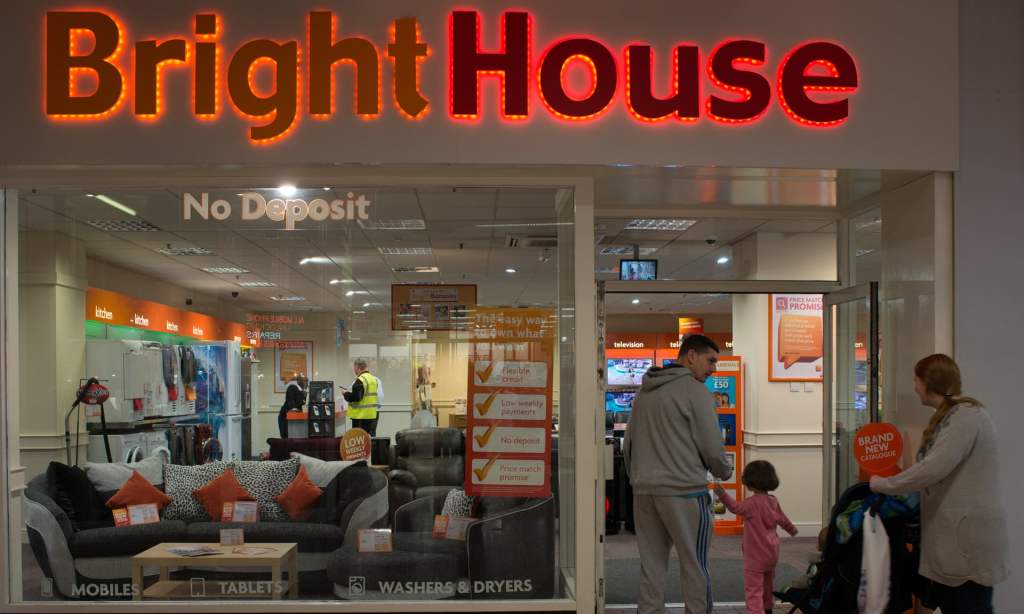Trust is the most valuable commodity in your organisation – although it’s probably not something you talk about often, much less attempt to measure.
A few months ago I took part in a steering group advising a group of people working in housing to tackle the ‘poverty premium’. That’s the additional price people can pay for being on a low income and who then become excluded from the best deals – by using pre-payment meters, not switching to the best fuel tariff or using higher cost credit.
The research team cited some interviews they conducted that stuck out for me: that some people had said they trusted Brighthouse, and other high cost lenders MORE than they did their own housing association?
That can’t be right can it?
Surely it’s impossible that someone would trust a rent to own store charging 99.9% interest over a social purpose organisation specifically set up to house and protect people?
Not so.
BrightHouse has an impressive four star ‘great’ rating on Trustpilot. A simple Google search will show you the housing associations featured get around one or two stars. “All they want is the rent and nothing else” is a recurring comment.
Of course this is not evidence in and of itself that BrightHouse is more trustworthy, but it does show that how many organisations have adapted much better to the digital age – where the accepted rules of trust don’t always apply.
As an example it’s interesting to see how BrightHouse respond when they get a one star review. Firstly they’ve taken the time to respond , something almost none of the non-profit providers have, and secondly they offered a solution.
Trust is fairly straightforward. We need to feel that organisations are competent and have the ability to fulfil their commitments. We need to believe they have the right motives and act fairly and honestly. We need to see they are transparent, that they are always learning from mistakes and failure.
That’s why Amazon can be trusted by 100 million prime members, despite some of their business practices. They deliver time after time and always take the side of the customer in any dispute. They don’t just say sorry, they appear to learn from it.
This isn’t just a problem for housing associations, but also the wider social sector, NHS and charities.
As Gerry McGovern has said, customers trust those who give them control — who put them in control — of their lives. They distrust those who try to control them.
Many of our social sector organisations don’t seek to put customers in control, or even regard them as paying customers. They can actually disempower them.
The network effect of technology has created a way for people to share experiences more quickly, and to more people with more detailed information than ever before.
Responding to that means radical behaviour change on behalf of organisations.
- That means reducing the gap between organisational rhetoric and the reality.
- That means stopping saying how great your organisation is.
- That means engaging rather than broadcasting.
- That means defaulting to transparency.
- That means doing what you say you will.
The social bond that connects us as people is based on trustability. Always-on interactivity and the proliferation of social media is making customers demand a new standard of trustworthiness from companies. Trust now lies in the hands of individuals, not in our organisations.
To be trustable, a business must act toward its customers and demonstrate humanity and empathy, the way one human being would act toward another. And to have empathy a business has to see things from the customer’s perspective, treating different customers differently, and demonstrating genuinely good intentions toward them.
BrightHouse and others like them – for all their faults – recognise that, and appear to solve real customer problems.
The way forward for the social sector isn’t to be more like them – it’s to abandon our professionalism and return to our roots.
We need to be rebuilt around people, with a modern sense of trust and compassion, not just focused on efficiencies, league tables and being ‘high performing’.
We need to move away from one size fits all services that don’t account for individual needs. One size actually fits no-one.
The basic principle of trust is easy: do what you say you are going to do.
And ultimately the best way to build trust is to actually be trustworthy.

Leave a reply to Paul Taylor Cancel reply